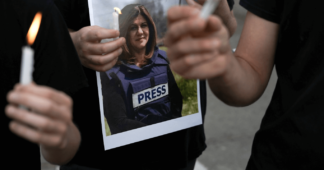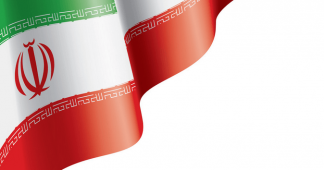By William Mallinson
Athens, 17 November 2023
Introduction: Mental Underpinning
Can I do this?
Only history exists; it is with us as I write. The future disappears into the past.
Themistocles Chrysanthopoulos, a friend of my mother and my koumbaros, ambassador of Greece, wrote: ‘Lies are always interesting; that is why they become public. Truths are boring; that is why they remain private.’
Everyone has a view, based on experience and knowledge. I have mine, and this is it, encapsulated in what my father wrote a couple of years ago: ‘The inhuman race comprises the most evil and violent creatures in the world. There are a few others, such as, for example, sharks, but for thousands of years, it is humans who have enjoyed killing people, many completely innocent, in their millions. And it’s still going on!
I sometimes wish that I had been born a monkey, and spent my days in the forest, looking for fruit and nuts. But then I thought, how long would it be before my forest was cut down to make paper for advertising? So I gave up the idea.’
My father was a British army officer Palestine in 1947, and was shot at by Zionist fanatics, when strolling with a friend. He thinks that he was rescued by a (non-fanatic) Jew, who opened his door to them when he heard gunshots. It could have been a Palestinian, of course, as they had not yet been ethnically cleansed by the Zionist fanatics. My father survived. So I exist.
And my mother? She was working for the United Nations in Rhodes, when she was asked to accompany Count Bernadotte on his peace mission to Palestine (after the ethnic cleansing of some 700,000 thousand Palestinians), with his sensible UN two-state partition plan. Luckily for her, her father forbade her from going; so, unlike Bernadotte and his driver, she was not murdered. So I exist. In 1948/9, at the Rhodes conference where a truce was agreed, she beat Moshe Dayan at table tennis. She remembers that the negotiators did not shake hands at the end of the conference. Ralph Bunche, later to become UN Deputy Secretary-General, arranged the ceasefire. He remained a friend of my mother for all his life.
So much for my personal introduction. Let us now consider fanaticism.
Fanaticism
According to the revered – but also despised – Winston Churchill, a fanatic is one who can’t change his mind and won’t change the subject. I agree, but he might have added that some fanatics are prepared to kill for their alleged – often religious – beliefs, as indeed Zionist fanatics, Moslem extremists, Sikh extremeists, and even alleged Christians, have done, and are doing. Churchill also wrote of Jews as ‘a world-wide conspiracy for the overthrow of civilisation and for the reconstitution of society’.[1] Maybe fanaticism was involved.
Then we have the genuine Orthodox anti-Zionist Jews, who abhor the state of Israel, along with the likes of Richard Falk, UN Special rapporteur for the occupied Palestinian territories, who is known to have accused Israel of genocidal tendencies. Such Jews are perhaps dangerously moderate for the Zionist extremists. So it was that a Zionist fanatic murdered the Jewish leader and peacemaker Yitzak Rabin, smashing any chance of a two-state peace deal. As for the likes of Sharon and Netanyahu, they are extremists, and beyond the pale, similar to the most extreme Taleban terrorists in mentality: people of a kind. Apart from Jewish and Islamic terrorists, there are of course Christian terrorists, viz., for example the 1995 Oklahoma bombing, which killed 268 people. Let us now delve a bit more in the quest to understand the story behind Hammas’ recent attack on Israel.
Palestinians and Jews
Zionist fanatics abhor mention of the words ‘Palestine’ and ‘Palestinian’, despite the ancient Greek historian Herodotus having written in the 5th Century BC of a ‘district of Syria, called Palaistinê’, between Phoenicia and Egypt. Jews, Palestinians and others from the Middle East are descended from the same ancient tribes, and few Palestinians are purely ethnically Arab, whatever the attempts to portray them as Arabs.
It is well enough known that wars can enhance hatred between peoples, usually stoked by the fanatic elements in governments, such as the American Neocons and fanatic Zionists.
Then we have the atavistic, but rather irrational, hatred of Jews generally, something that goes back at least to the Crusades, when before leaving for the Holy Land, crusaders used to go on an anti-Jewish rampage. In literature, we have Shakespeare’s negative depiction of the Jew who demanded his pound of flesh, in The Merchant of Venice; and of course Marlowe’s play The Jew of Malta. To this we can add the Pogroms in Russia, Henry Ford’s attack on the international Jew, and Winston Churchill’s above-mentioned reference to the Jews as ‘a world-wide conspiracy for the overthrow of civilisation and for the reconstitution of society’. And to quote from John Buchan’s famous The Thirty Nine Steps; ‘Capital, he said, had no conscience and no fatherland. Besides, the Jew was behind it, and the Jew hated Russia worse than hell. […] The Jew is everywhere, but you have to go far down the backstairs to find him. […] But if you’re on the biggest kind of job and are bound to get to the real boss, ten to one you are brought up against a little white-faced Jew in a bathchair with an eye like a rattlesnake.’ Strong stuff from the first Baron Tweedsmuir!
The United States of Israel
The US’s closest ally, atavistic, military, financial and emotional, is Israel, and there will always be arms and money from Washington. Indeed, one can even wonder where Israel ends and the US begins. Apart from the Christian Zionists and the powerful Jewish lobby, a majority of Americans support Israel strongly and emotionally, whereas many do not even know much about Ukraine. Thus American financial support for the Jewish state will take precedence over aid for Ukraine, and is likely to be only piecemeal, and a PR exercise, leaving European taxpayers to foot the bill. It is hardly unreasonable to suppose that the US and Israel co-ordinate their policies on the Middle East. The world has seen the problems encountered when a political state is also a religious one, and connects religion and race to land as its very raison d’être. This is why some suggest that Judaism – in its most fanatic form – is a real estate religion.
Perhaps, and to their credit, some of the most powerful and persuasive arguments against the activities of the Israel lobby and Zionism have come from Jews. Some Jews cannot ‘stomach Zionism’. For those whose motives are purely spiritual, the Jewish state is at best an irritant, at worst a blasphemy[2], according to The Atlas of the Jewish World, published by Time Life Books in 1995. One of the most critical books about the excesses of Zionist fanatics against innocent Palestinians was recently written by an Israeli academic, Ilan Pappe. It details in precise terms the plan to expel hundreds of thousands of Palestinians from their lands, even before the war of 1948, including how and when particular murders of civilians were planned to achieve maximum effect.[3]
Blindness and Fanaticism
Most religions have their minority of fanatics, including various Christian, Moslem and Jewish sects. A good deal has been written about religion and politics, particularly about the unsavoury aspects of Moslem extremism. Let us now consider the dangerous aspects of ‘Christian Zionism’, as it has come to be known, but in particular ‘American Zionism’, in other words ‘active support for Israel and her policies’, in the words of the British Embassy in Washington in 1972. [4]
If hard-nosed national interest and a fascination with power are two important characteristics of the geopolitical mentality (and of power politics/political realism), Christian Zionism can also play a rôle, and can indeed influence foreign policy. There has always been a certain evangelical spirit in US foreign policy, present since the very War of American Independence in Puritanism and in its constant references to the God of Israel[5]. In 1947, the British Embassy in Washington commented: ‘The missionary strain in the character of Americans leads many of them to feel that they have now received a call to extend to other countries the blessings with which the Almighty has endowed their own.’[6]
In recent years pre-millennialism (or dispensationalism) has made leaps and strides, mainly among the around 40% of Americans who belong to a Christian sect. Dispensationalists believe, in line with their interpretation of the Bible, that we are now living in the ‘end-time’, and that the true believers will be spared the horrors of the last moments. Thus, the disorder and wars which the world is currently experiencing are simply part of ‘God’s plan’, according to dispensationalists, and can therefore be justified. [7]building Zion in America has now been supplanted with supporting the state of Israel. It is worthy of note that the late Osama bin Laden and his followers also believe that current ‘history will end in violence’ before a ‘new history’ comes about.[8] In this warped and Manichean sense, extremist Christian evangelists and fanatical Moslems are oddly similar. The Neocons and Osama Bin Laden are thus linked by a Manichean form of thinking that has no truck with moderation, tact and diplomacy. The broad picture, allegedly in line with their interpretation of God’s will, is all that counts.
The most recent well-known critique of the Zionist lobby was written by respected academics John Mearsheimer and Stephen Walt in 2006[9], causing a furious reaction among extremist Zionists. The article’s main argument was that the power of the Israeli lobby had led to one-sided US support for Israel, that was inconsistent with its own interests and those of other states in the region. The US had become the de facto enabler of Israeli expansion in the occupied territories, ‘making it complicit in the crimes perpetrated against the Palestinians’; the article highlighted US hypocrisy in this complicity, given that it presses other states to respect human rights, and that it condones Israel’s nuclear arsenal, while insisting that Iran and others must not have a nuclear capability.
The above-mentioned Foreign Office paper can be considered as a – perhaps more subtle – version, in certain respects, of the Mearsheimer/Walt paper, remarkable in that it was written thirty four years earlier. Had it been published, it could well have produced a Zionist backlash, just as the recent Walt/Mearsheimer critique did. The paper equated for its purposes the term ‘American Zionism’ with active support for Israel and her policies. Extracts from the paper speak for themselves, requiring little if any interpretation: ‘The well-organised lobby of Jewish organisations concentrates its activities on influencing congress. There is very little activity in State Legislatures, mainly because few issues arise affecting Israel or the Jewish community in those bodies. The obvious point of pressure must be Congress and there is little doubt that much of the active output of the Zionist organisations is devoted to that end […] whenever an important event occurs in the world at large or in this country, or whenever there is any public threat to Israel, a flood of letters descends upon the offices of Senators and Representatives throughout the country. Some, no doubt, are spontaneous, but the majority show unmistakable evidence of a careful orchestration.’[10]
The paper devoted some attention to Zionist activity in the press, ‘which are [sic] in any case responsive to pro-Israeli articles [sic][11], largely because a number of press magnates, editors and journalists are themselves of Jewish stock.’ An example of clearly illicit pressure is given: ‘A well-known columnist, who writes in the Christian Science Monitor, told us last year that, when he wrote an editorial which contained mild criticism about the intransigence of the Israeli government, he received a telephone call from the Israeli Embassy in Washington within the hour to express official Israeli displeasure. He was told that such judgements would not be well received by many of the big firms in the Boston area who bought advertising space in the paper and that the Israeli Embassy were confident that he would not wish to deprive his paper of much needed revenue. […] There can be little doubt that the Israeli Embassy discreetly passes on information to the Jewish organisations [my italics], but it would be difficult to point to a direct link’.[12]
To Conclude
I began this article by asking: ‘Can I do this’? I have merely tried to show that fanatics are incapable of stopping. In this sense, Winston Churchill’s observation that a fanatic is one who can’t change his mind and won’t change the subject was accurate. Add the exploitation of religion to this, and there is the answer.
My answer is to revert to Count Bernadotte’s plan, and support the likes of Jews such as Richard Falk. The fanatics will then gallop away with their tail between their legs.
[1] Irving, David, Churchill’s War, vol. 1, Arrow Books, London, 1989, p. 20.
[2] De Lange, Nicholas, Atlas of the Jewish World, Time Life Books, Andromeda Oxford Limited, 1995, p. 132.
[3] Pappe, Ilan, The Ethnic Cleansing of Palestine, One World, Oxford, 2007.
[4] ‘Zionist Organisations in the United States’, paper prepared by the British Embassy in Washington, 16 March 1972, FCO 17/1763, file NER 18/7
[5] Northcott, Michael, An Angel Directs the Storm, I.B. Tauris, London and New York,2004, pp. 4 -5.
[6] Telegram from the British Embassy in Washington, commenting on the Truman Doctrine, 14 March 1947, printed in Documents on British Policy Overseas, Series 1, Volume XI, No. 62.
[7] Ibid., p. 44.
[8] Ibid., pp. 10 and 40.
[9] Mearsheimer, John and Walt, Stephen, ‘The Israel Lobby’, London Review of Books, 23 March 2006.
[10] Op. cit., ‘Zionist Organisations in the United States’.
[11] The word ‘articles’ should presumably be ‘attitudes’. A near malapropism!
[12] Op. cit., Zionist Organisations etc.
We remind our readers that publication of articles on our site does not mean that we agree with what is written. Our policy is to publish anything which we consider of interest, so as to assist our readers in forming their opinions. Sometimes we even publish articles with which we totally disagree, since we believe it is important for our readers to be informed on as wide a spectrum of views as possible.










